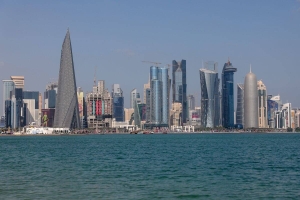China and Singapore agree to let each other’s citizens travel visa-free

[ad_1]

China and Singapore have agreed to introduce a mutual 30-day visa-free travel arrangement at their annual forum.
Singapore’s Deputy Prime Minister Lawrence Wong said the agreement would “enable more people-to-people exchanges, thereby fortifying the bedrock of our bilateral relations”, according to The Straits Times newspaper.
Wong, who co-chaired the event in Tianjin with Chinese Vice-Premier Ding Xuexiang, also said both sides wanted to strengthen cooperation in various sectors and he hoped the number of direct flights between the two countries would exceed pre-pandemic levels., according to Singapore media.
China’s foreign ministry spokesman Wang Wenbin said the agreement would be “great news” for citizens of both countries, adding that “greater people-to-people and cultural exchanges … serve the fundamental interests of the two peoples”.
He did not offer further details on the arrangement, only saying it would come into effect “at another date”.
Singapore’s foreign ministry said both countries “will work out the implementation details … and implement it in early 2024”.
Previously, Singaporean citizens could make social visits to China for up to 15 days, an arrangement that was suspended during the Covid-19 pandemic and reinstated in July. However, mainland Chinese citizens have always needed a visa to enter Singapore.
Singapore’s Wong and China’s Li agree to boost ‘mutually beneficial cooperation’
Singapore’s Wong and China’s Li agree to boost ‘mutually beneficial cooperation’
According to Singapore’s Prime Minister’s Office, a record 24 agreements were signed and endorsed at the forum on Thursday – covering areas such as education and trade, including an upgrade to their free-trade agreement.
The statement said the meeting reviewed cooperation in a wide range of areas, including on China’s Belt and Road Initiative and fields such as the digital economy, renewable energy and science and innovation.
“Deputy Prime Minister Wong and Vice-Premier Ding agreed that Singapore-China cooperation had been comprehensive and progressive, evolving over the years in tandem with each countries’ respective development priorities,” it said.
“They also agreed that both sides should continue to adopt a forward-leaning approach and tap on opportunities in emerging areas to deliver high-quality outcomes that would benefit both countries as well as contribute to regional prosperity.”
[ad_2]
Source link





